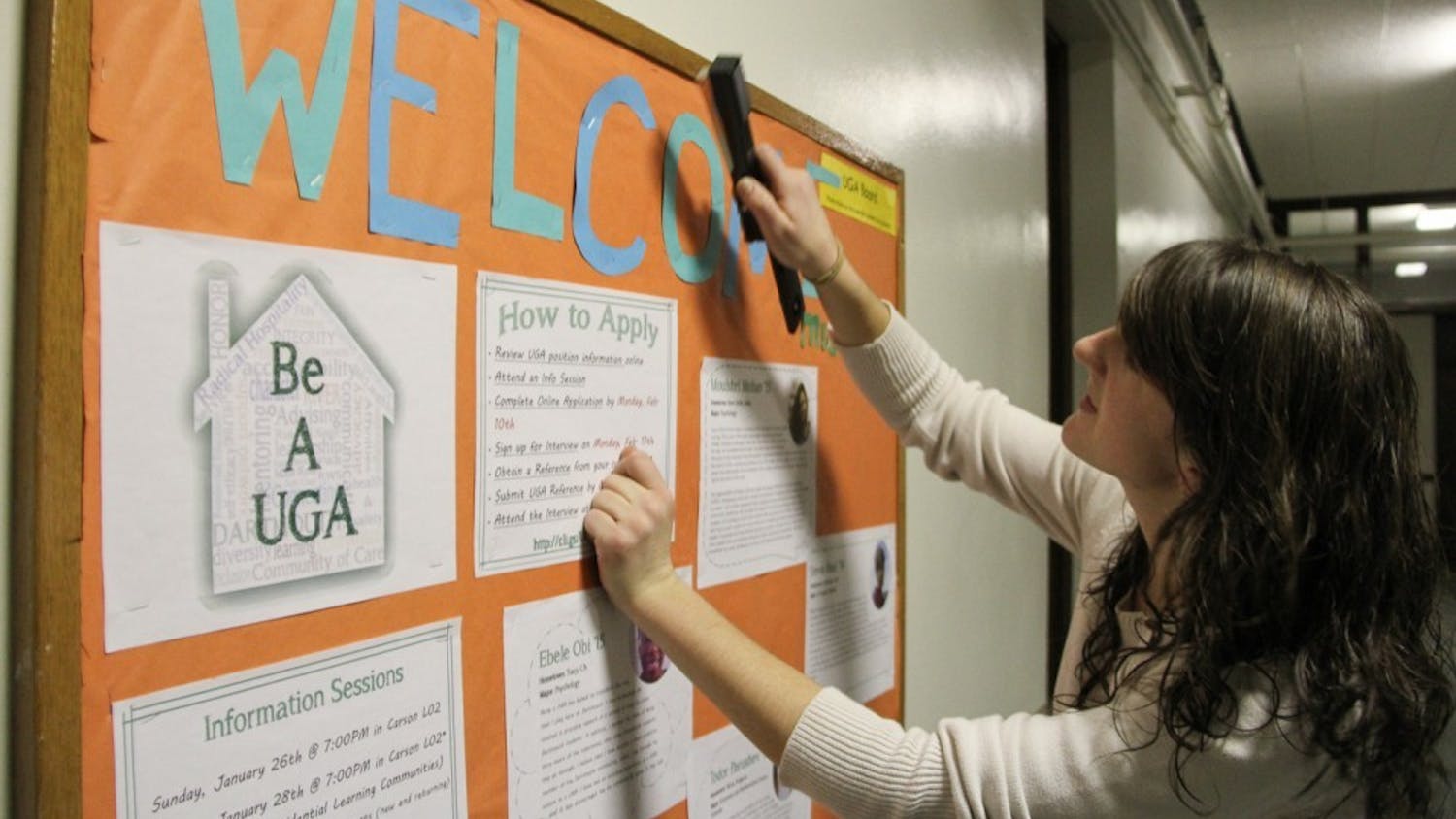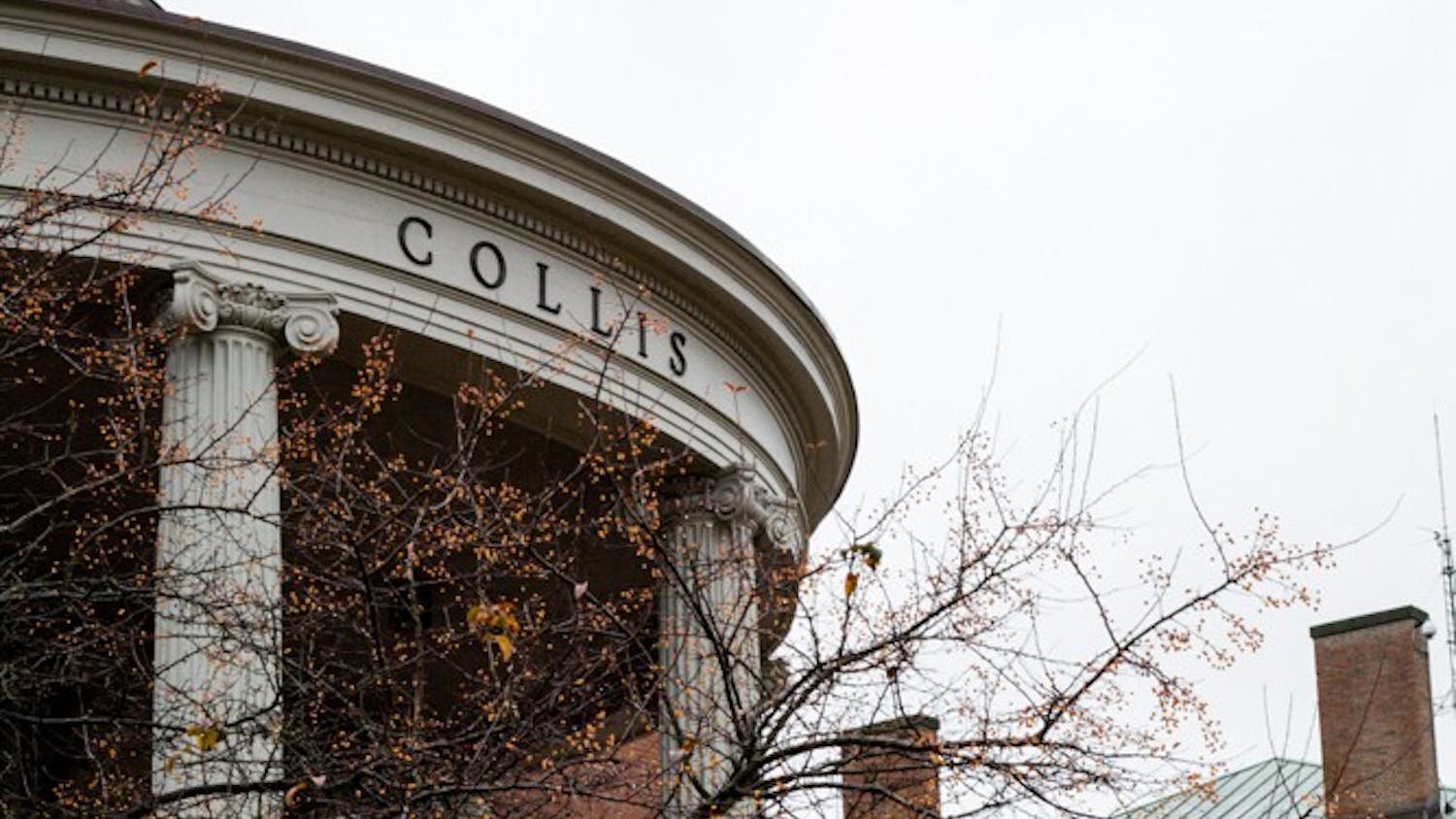A unique freshman class, the return of presidential politics and several campus controversies made for an active fall term in 1995.
The term began with the welcoming of the Class of 1999, the first class in the history of Dartmouth to contain more women than men, an event that many said marked how far the College had come since the start of coeducation in 1972.
U.S. News & World Report released its annual survey of American colleges and ranked Dartmouth first among national universities in a new category measuring the quality of teaching.
Once again, the Greek system proved to be a source of controversy and debate during the fall.
Professor Tom Luxon's showing of the "Hell Night" video, which depict the graphic initiation rituals practiced by members of the Alpha Delta and Alpha Chi Alpha fraternities in the late 1980's, was halted by mounting tension between Luxon and fraternity brothers in the audience.
Kappa Chi Kappa fraternity's decision to return to its historical name of Kappa Kappa Kappa also provoked debate over the relationship between the fraternity system and the Dartmouth community.
Many students felt the potential association between the fraternity's name and the Ku Klux Klan showed a lack of sensitivity on the part of the Tri-Kap brothers.
Members responded by pointing out that they would not be using the initials KKK and said no connection exists between the names of the two organizations.
Meanwhile, controversy over a poem written and read at a house meeting last summer by a Beta Theta Pi fraternity brother continued. In a letter to the Dartmouth community, Dean of the College Lee Pelton called on Beta to take steps to develop programming opposed to the attitudes displayed in the letter.
Pelton said such attitudes were "symptomatic of a structural problem to which selective, single-sex social organizations" like fraternities are vulnerable.
Although it occurred during the summer, the impact of the suicide of Sarah Devens '96 reverberated through Dartmouth for much of last term.
Marcus Rice '94 and Philip Deloria '96 also took their own lives last term, contributing to a campus wide feeling of mourning.
The College's area coordinators organized a candlelight vigil on the Green for these three students, followed by a discussion of their deaths.
Campus controversy took on a more orderly form during a debate between Government Professor Roger Masters and former Dartmouth Review editor Dinesh D'Souza '83. They debated the issue of racism in front of a standing room only crowd.
While Masters argued that government must work to combat institutional racism, particularly in relation to environmental conditions, D'Souza said African-Americans are being held back by their own culture, which does not prepare them for life in the United States.
Allegations of homophobia came to the forefront of campus consciousness after several incidents of on-campus vandalism.
Several students reported that stickers and signs on their doors supporting gay rights had been torn or written over. On Halloween night, a window displaying the banner of the Dartmouth Rainbow Alliance was hit with dirt at Lord residence hall.
Politically, the term was dominated by the visits of several candidates for the Republican presidential nomination, all vying for position in the February New Hampshire primary.
Lamar Alexander, a former governor of Tennessee, was the first candidate to speak at Dartmouth. He placed heavy emphasis on his Washington outsider status and the need for personal, rather than federal, responsibility.
Conservative political commentator Patrick Buchanan delivered a isolationist foreign policy message to students and promised to be the "most pro-life president" in history.
Chicago businessman Morry Taylor, a lesser-known Republican candidate, emphasized the need for business skills in running the federal government.
Dartmouth's Rockefeller Center and WMUR-TV of Manchester began collaborating on a series of five polls examining the primary preferences of New Hampshire's voters.
Results from the second poll, taken between Oct. 22 and 25, indicate that Senator Robert Dole (R-Kansas), is the clear front-runner while businessman Steve Forbes has made a strong showing by focusing on issues in an intensive advertisement barrage.
A recently completed analysis indicates voters' positive impressions of Dole appear to outweigh many negative opinions they hold against him, including his age and reputation as a compromiser who frequently reverses himself on issues.
Buchanan apparently does not have the luxury of positive impressions that would offset his high negative ratings, whereas Senator Phil Gramm (R-Texas) has equivalent positive and negative ratings.
The poll also revealed that Forbes and Alexander are viewed favorably by a larger percentage of the voters who know them than other candidates.



